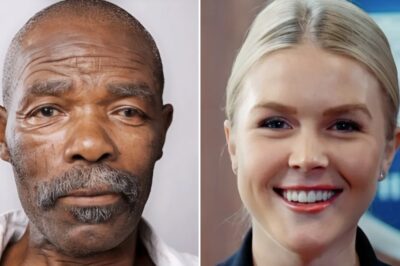Who Are the Democrats Fighting For? A Critical Exploration Inspired by Judge Jeanine
Every day, millions of Americans tune into political talk shows to make sense of the heated debates that shape our nation. One of the most dynamic platforms is Fox News’ “The Five,” where co-hosts, including the spirited Judge Jeanine Pirro, passionately discuss the issues dominating headlines. Frequently, Judge Jeanine, a former district attorney and judge, poses a pointed question: Who are the Democrats fighting for? Her sharp, unabashed takes provoke both agreement and controversy—but beyond the rhetoric, the question itself cuts to the heart of American democracy.

The Democratic Party, historically, has positioned itself as a champion of underrepresented groups and a defender of progressive ideals. Yet, as the nation grows increasingly polarized, critics like Judge Jeanine urge viewers to scrutinize the party’s true allegiances and intended beneficiaries. Let’s explore this question deeply, examining the evidence, rhetoric, and reality behind the Democrats’ proclaimed purpose.
Historical Perspective: A Party of the People?
Traditionally, Democrats have claimed to fight for the “common man.” From Franklin D. Roosevelt’s New Deal reforms during the Great Depression to Lyndon B. Johnson’s Great Society programs in the 1960s, Democratic leaders built social safety nets and expanded civil rights, proudly championing the working class, minorities, and vulnerable citizens.
For decades, this was largely true: labor unions, civil rights organizations, and grassroots activists found allies in Democratic politicians. The party helped spearhead Medicare, Medicaid, Social Security, and critical civil rights legislation, cementing its legacy as a force for progressive change and social justice. Yet, as the nation has evolved, so too has the party’s base and priorities.
Modern Democrats: Diverse Coalitions, Varied Interests
Today’s Democratic Party is more diverse than ever, representing urban professionals, communities of color, young voters, and increasingly, suburban moderates. The contemporary “big tent” philosophy means the party strives to be inclusive—sometimes at the expense of clarity regarding whom they ultimately serve. Judge Jeanine and her colleagues often highlight this complexity, criticizing Democrats for what they perceive as shifting or inconsistent priorities.
1. Advocates for Marginalized Groups
Modern Democrats prominently advocate for women, people of color, immigrants, and the LGBTQ+ community. On nearly every issue—from voting rights to healthcare—Democratic leaders argue their policies benefit those most at risk of marginalization. The party’s support for DACA recipients, advocacy for transgender rights, and commitment to reducing systemic inequalities are all cited as evidence.
Supporters believe this focus is both moral and necessary; they see the party as a bulwark against historic discrimination and modern hate. Critics, however, often argue that Democrats prioritize identity politics over economic realities—a frequent refrain on “The Five.”
2. Champions of the Working Class … or Coastal Elites?
Perhaps the most contested group the Democrats claim to champion is the working class. For decades, the Democratic platform emphasized blue-collar issues: union protections, wage increases, affordable healthcare, and better workplace conditions. In recent years, however, detractors—Judge Jeanine included—claim that the party has drifted toward the interests and ideologies of highly-educated urban elites in coastal cities, sometimes to the neglect of rural and working-class Americans.
This narrative gained traction during the Trump years, as swaths of working-class voters shifted Republican, feeling left behind by globalization and technology. Analysts argue that Democrats must navigate a fine line: advocating for progressive social issues while regaining the trust and allegiance of the economically dislocated.
3. Environmental Advocates
Another key plank is climate change. Democrats often stake their claim as protectors of the future through ambitious proposals like the Green New Deal or re-entering international agreements like the Paris Accord. These initiatives, proponents argue, disproportionally help poor communities and future generations, who would be most affected by environmental disaster. Skeptics, as seen on “The Five,” accuse Democrats of favoring environmental policies that can inadvertently harm traditional energy jobs—particularly coal, oil, and manufacturing—in favor of “coastal green elites.”
4. The Youth Vote
The Democratic Party has aggressively courted younger voters. Issues like student debt relief, gun reform, and marijuana legalization aim to address the concerns of millennials and Gen Z voters, who will shape future elections. By supporting tuition-free college or advocating for significant gun control measures, Democrats claim to stand for the next generation. Critics, however, sometimes argue that such policies promise more than they can deliver, or that they disregard long-term economic realities.
Judge Jeanine’s Perspective: A Critical Lens
Judge Jeanine Pirro is rarely ambiguous. On “The Five,” she regularly accuses Democrats of self-interest, virtue signaling, and abandoning accountability. In her view, modern Democrats focus more on cultivating political bases and pandering to transient cultural trends than on delivering substantive, effective solutions to everyday Americans.
Pirro and her co-hosts frequently point out what they see as policy contradictions: calls to “defund the police” versus rising crime in Democratic-run cities, rhetoric in support of working-class Americans paired with regulatory or tax policies that may hurt small businesses, and immigration reforms that some argue depress wages or strain local resources. For Judge Jeanine, the question is more than rhetorical; it’s a challenge to Democrats to reconcile their stated goals with observable outcomes.
A Nuanced Reality
The truth, as with most political questions, lies in a complex middle ground. The Democratic Party is, and always has been, a coalition—its members and supporters are as varied as the country itself. Democrats undeniably continue to fight for marginalized groups and disadvantaged populations, as seen in both legislative agendas and campaign promises. However, as the nation’s demographics and economy shift, so too do the party’s coalitions, strategies, and priorities.
America’s two-party system ensures that both Democrats and Republicans must balance ideals with pragmatism; everyone claims to fight for “the American people.” The real question, perhaps, is not simply who they fight for—but how effectively they deliver for those they claim to champion.
Conclusion
“Who are the Democrats fighting for?” It’s a question that Judge Jeanine Pirro poses with characteristic intensity, and one every American should ask of their leaders. The answer is as broad and varied as the nation itself: sometimes inspiring, sometimes frustrating, always evolving. Behind the soundbites and debates, the essential task remains: to hold every party—Democrat or Republican—accountable to the people they serve. Only then can democracy fulfill its highest promise.
News
Details of ‘world’s most lethal weapon’ Trump’s F47 fighter jet emerge
The fearsome fighters will be policing the skies before the end of the decade INCREDIBLE new details about the US…
Serial killer with link to OJ Simpson case sends bizarre message to Trump in final words before being put to death
Serial killer with link to OJ Simpson case sends bizarre message to Trump in final words before being put to…
Dramatic moment ten ‘armed and dangerous’ inmates break out of jail through hole in a cell in Shawshank – style escape
Dramatic moment ten ‘armed and dangerous’ inmates break out of jail through hole in a cell in Shawshank – style…
60 Minutes airs bombshell segment despite warnings it would send Trump nuclear amid $20 billion lawsuit
Donald Trump was the focus of a scathing segment on Sunday’s 60 Minutes, even as the show’s bosses at CBS and Paramount…
BREAKING NEWS: Karoline Leavitt Discovers Her High School Janitor Still Working at 80, Her Next Move Stuns Everyone!
BREAKING NEWS: Karoline Leavitt Discovers Her High School Janitor Still Working at 80, Her Next Move Stuns Everyone! The gymnasium…
Who was Graham Hoffman? ‘A genuine soul’ and ‘leader on and off the job’
Who was Graham Hoffman? ‘A genuine soul’ and ‘leader on and off the job’ KANSAS CITY, Mo. (KCTV) – First…
End of content
No more pages to load


















